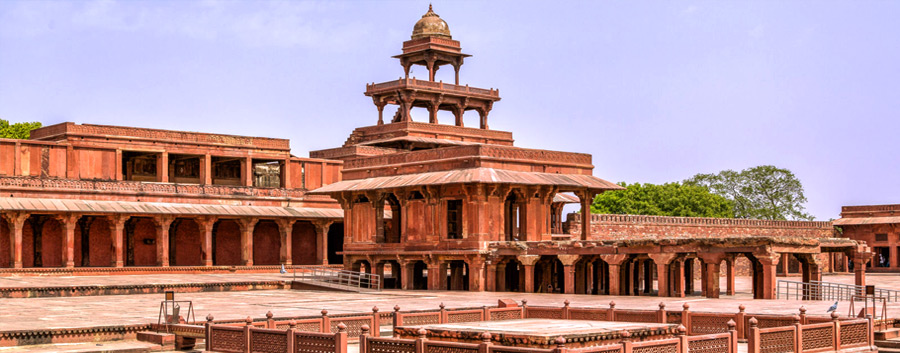Fatehpur Sikri Tour

Places Covered: Fatehpur Sikri - Agra
Unfortunately I've not visited Fatehpur Sikri, a ghost city 37 km from Agra, simply because I didn't know it existed.
I would encourage any future visitor of Agra to pay it a visit.
The site is founded by Akbar the great, who at 26 years did not have a heir. He went to a saint, Shaikh Salim Chishti who lived in a city called Sikri.
His blessing gave Akbar 3 sons. As a gesture, Akbar built a whole new city in Sikri.
An emperor builds a magnificent city as an act of gratitude to a penniless saint, makes it the capital of his empire and then, for some inexplicable reason, abandons it.
Fatehpur Sikri - A city an emperor forgot
After just fourteen years of life, the palaces of Akbar's great City of Victory fell silent. Its echoing corridors still seem to wait for the king to return.
The hill-top city lies 37 kms from Agra in the state of Uttar Pradesh. This deserted city has two distinct complexes. The first comprises the royal enclosure of the palaces, the harem and official buildings and the second is the dargah of a Sufi saint, with a mosque and a lofty gateway.
To wander among the red sandstone courtyards of Fatehpur Sikri is to travel back in time to when the Mughal emperor Akbar rode through its gateway after a triumphant campaign, to be welcomed by his delighted subjects and the royal court.
In need of an heir
By 1568, Akbar, the third monarch of the Mughal dynasty had built himself an impressive empire. His kingdom spanned north India and there was no king who could challenge him. There was peace in the land and the royal treasury overflowed with tribute. His only grief was that, at he age of twenty-six and after twelve years of rule, he had no heir. None of his sons had survived infancy.
Salim Chishti's prediction
When Akbar prayed before the Sufi saint, Sheikh Salim Chishti, he predicted that the king would have three sons. Chishti lived in a scheduled hill-top shack in a village called Sikri, a little removed from Agra. In 1569, one of Akbar's Rajput queens, who later came to be known as Maryam Zamani or Mary of the Age, gave birth to a son.
The city of victory
He was named Salim after the saint. And, as predicted, two other sons were born within the next few years. The emperor gave thanks with extravagant grandeur. In 1571, Akbar began building a mosque and then a palace complex at Sikri. Gradually the royal court shifted from Agra to the new city. The nobility built their mansions further down the hill and shops lined the road to Agra. To commemorate his conquest of Gujarat, Akbar named his new capital Fatehpur Sikri or the City of Victory.